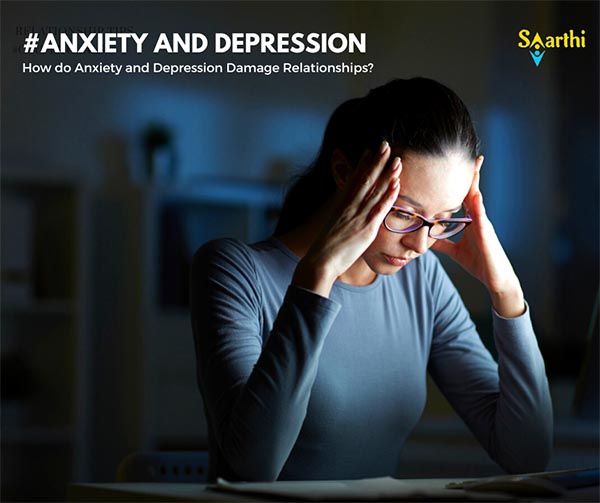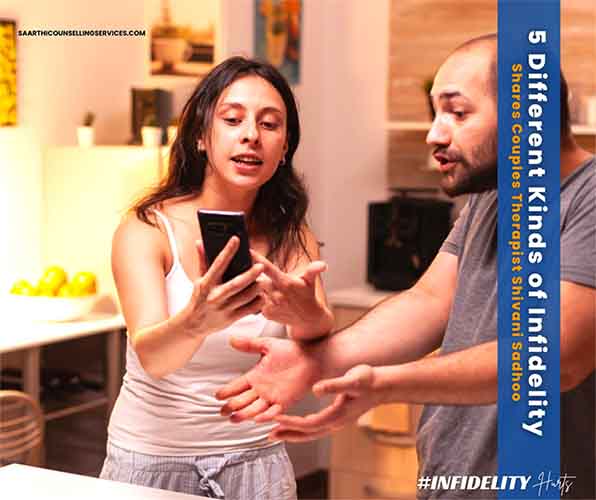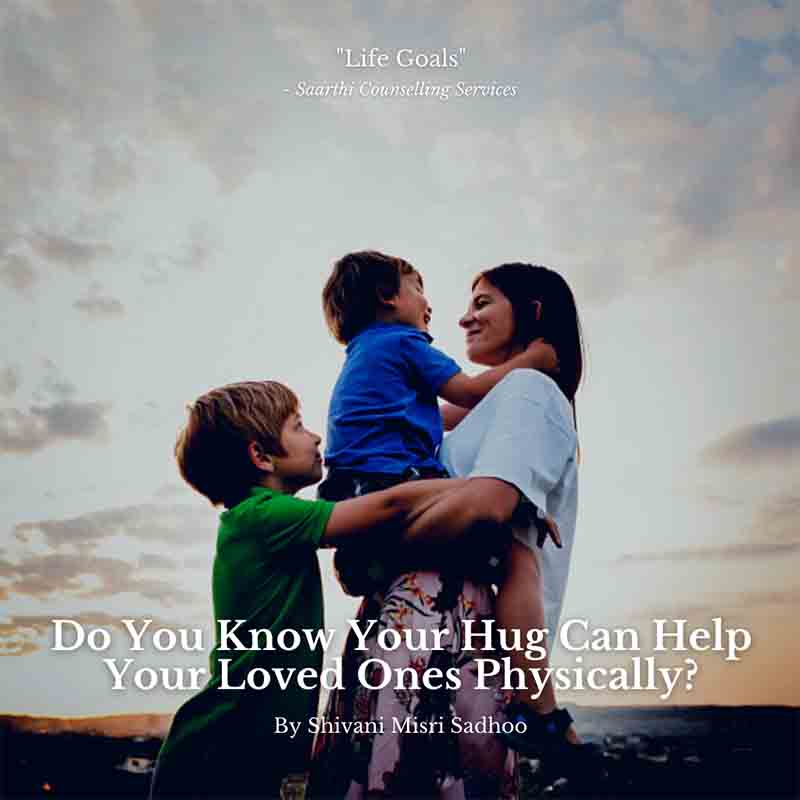Leading Couples Therapist Shivani Misri Sadhoo decodes the impact of our anxieties and sadness on our relationships and she reveals how counseling can help to rejuvenate the marriages
Anxiety and depression destroy relationships because they make a problem-causing cycle between two individuals trying to be together meaningfully. Both depression and anxiety can exterminate that meaning and replace it with mistrust. This forms relationship dissatisfaction, which in turn could exacerbate mental health struggles.
The bigger and stronger anxiety and depression get, the more stress engulfs the positives in a relationship. The vicious cycle continues until anxiety and depression end the relationship. This is not guaranteed, however. You can do things to support your mental health and your relationship, says Shivani Sadhoo.
Through this blog India’s top couples therapist and psychologist Shivani Misri Sadhoo shares how depression and anxiety affect a relationship and how counseling can help.
How do anxiety and depression impact relationships?
One of the strongest contributing factors to the vicious cycle of depression, anxiety, and romantic relationship distress is perspective. How you view and interpret people and circumstances greatly impacts your relationship. One of the issues with depression and anxiety is that they engulf and darken perspectives. In a relationship, this jagged perception can do quite a bit of damage, like:
- Corrupt thoughts and making negative thinking patterns are the go-to methods of interpreting the relationship and partner.
- Making negative emotions about issues magnified by anxiety or depression.
- Making hurtful misunderstandings and misinterpretations of words, body language, and conduct.
- Enhanced negative beliefs, including dissatisfaction with each other and the overall relationship.
When a person experiences depression, anxiety, or both, their clouded perceptions start to influence their actions in their relationship. Negative thoughts and emotions could be hurtful and frustrating, but on their own, they are not enough to damage a relationship. It is when they start to impact choices and actions that a hole in a relationship turns into a deep chasm. You may notice some of these problems or similar ones in yourself, your spouse, and your relationship:
- You do not connect because you or your partner are afraid of intimacy.
- You do not connect since you or your partner is too exhausted.
- You constantly argue, bicker, and blame because of irritability and anger created by either anxiety or depression.
- One or both of you has withdrawn, so you are no longer present together in the relationship.
- Sexual affection and tender moments have ended.
- One or both of you has given up other friendships and interests, creating isolation, guilt, and resentment (when one of the partners does this due to depression and anxiety, it negatively influences the other).
- Criticism starts to replace caring words.
Depression, anxiety, and relationships are a lethal combination. Two caring entities who were once in love can become exhausted and disappointed. This could destroy any relationship. That is the worst news. The great news is that if you live with anxiety and depression, your relationship is not automatically doomed.
How to help relationships being damaged due to depression and anxiety
Anxiety, depression, and relationships go to and fro together. While this could be problematic when the cycle goes down into the deep chasm that has happened in your relationship, this associated movement provides a wonderful opportunity to help and heal.
Remember that negative cycle of depression, anxiety, and relationship dissatisfaction and distress? You are able to turn that same cycle into a positive one. By acting, even in a little manner, in one aspect you simultaneously support the others. When you and your significant one do things to reduce anxiety or depression, they both improve.
As these mental health struggles lose strength bit by bit, your perception regarding your relationship shifts. You are able to witness it more positively. Then that healthier relationship helps anxiety and depression.
One of the most essential ways to help depression, anxiety, and your relationship is for you and your partner to fully reconnect with each other.

















